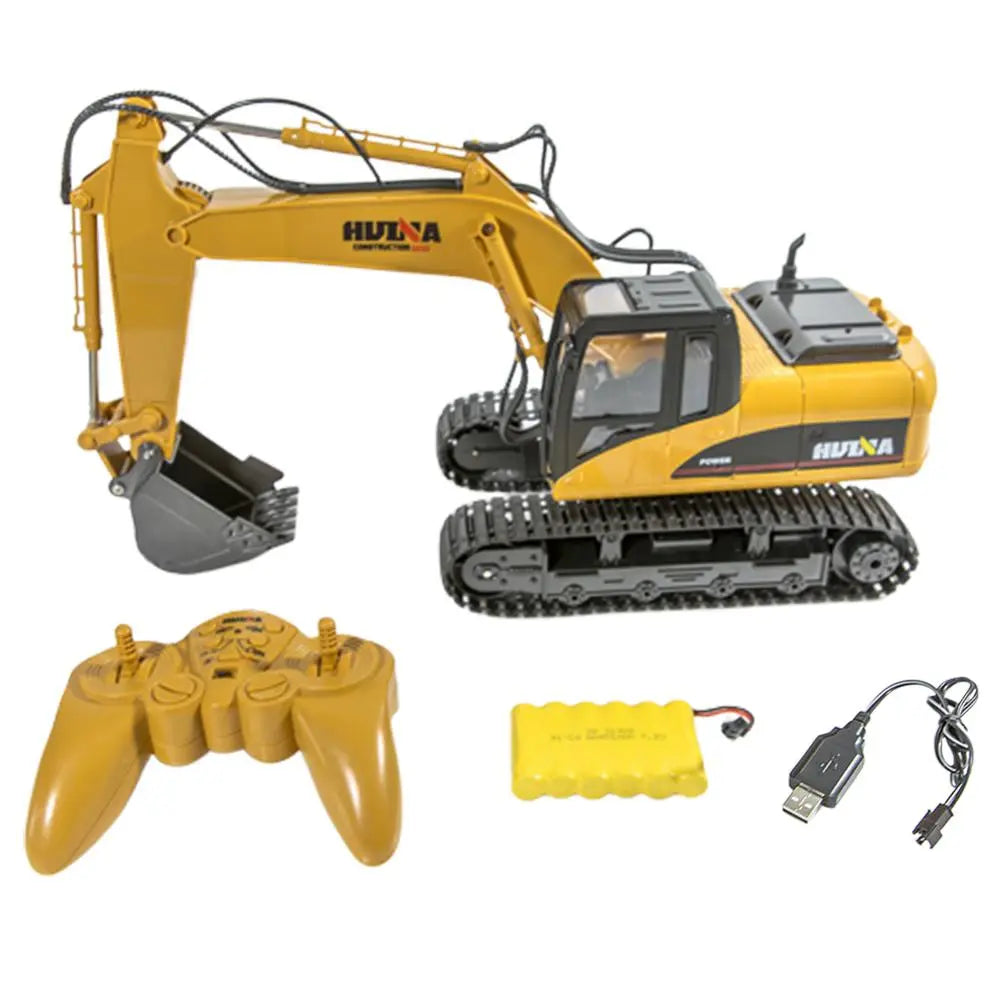Understanding Exactly How Excavator Functions and Its Effect On Performance
Excavators play a necessary duty in building and construction and mining operations, relying upon an intricate interaction of hydraulic and mechanical systems. Their capability to carry out a selection of tasks rests on both their layout and the technology integrated within. Understanding these elements can significantly influence operational efficiency and efficiency. As improvements proceed to reshape the industry, one must consider how these adjustments will certainly affect future techniques and efficiency.
The Basics of Excavator Mechanics

The Duty of Hydraulic Systems in Excavators
At the heart of excavator procedure lies the hydraulic system, which plays a critical duty in powering the machine's features and movements. This system utilizes pressurized hydraulic liquid to transfer power, allowing numerous actions such as swinging, lifting, and digging. By taking advantage of the principles of hydraulics, excavators can carry out jobs with amazing precision and force, enhancing general operational efficiency.The hydraulic system includes key parts, consisting of shutoffs, cylinders, and pumps, which interact to control the circulation and direction of the liquid. When the operator engages the controls, the hydraulic fluid is routed to details cylinders, translating the driver's commands right into physical movement. This mechanism enables smooth and responsive actions, which are necessary in building and construction and excavation environments. double e volvo rc excavator. The efficiency of the hydraulic system directly influences the performance and convenience of the excavator, making it a vital aspect in modern-day excavation procedures
Key Elements of an Excavator
Comprehending the key parts of an excavator is crucial for grasping just how this powerful device operates. An excavator is composed of a number of significant aspects, consisting of the undercarriage, house, bucket, boom, and arm. The undercarriage supplies security and flexibility, typically including wheels or tracks to browse various terrains. Your house contains the engine and hydraulic systems, allowing the driver to regulate motion and power the device. The boom expands from your home, enabling upright reach, while the arm connects to the bucket, promoting digging and training operations.Additionally, the taxi houses the operator, furnished with controls for specific maneuvering. Each of these elements plays an important duty in the excavator's total functionality, adding to its effectiveness and performance on building and construction websites. Understanding these components aids in maximizing and keeping excavator efficiency, making certain jobs are completed securely and effectively.
Attachment Adaptability and Its Advantages
Accessory versatility is a necessary facet of excavators, allowing operators to switch in between various tools tailored for specific tasks. This flexibility not just enhances job effectiveness however likewise adds to cost-effectiveness by lowering the requirement for numerous devices. Understanding the different sorts of accessories readily available can greatly impact the total efficiency and performance of an excavator on work websites.
Types of Attachments
While excavators are mainly acknowledged for their excavating capabilities, their real convenience lies in the vast selection of add-ons available. These attachments enhance the excavator's capability, permitting it to carry out various jobs past excavation. Usual add-ons include buckets (for digging and scooping), hydraulic thumbs (for realizing materials), and augers (for piercing openings) Grapples are made use of for handling and moving debris, while rippers can separate tough surface areas. Other specialized add-ons, such as trenchers and plows, enable excavators to adapt to details job needs. This diversity not just raises the maker's energy across various markets, consisting of landscaping, construction, and demolition, but also permits operators to customize their tools to satisfy details task demands effectively.
Increased Task Effectiveness
Making the most of work effectiveness is a primary benefit of making use of various excavator attachments. Different add-ons allow an excavator to do numerous tasks without requiring to switch over equipment, saving valuable time and labor. As an example, utilizing a hydraulic hammer can damage concrete while a pail add-on can excavate dirt, enabling a seamless workflow. This convenience lowers downtime connected with equipment changes and enhances performance on-site. Additionally, specialized attachments boost accuracy in tasks such as grading or landscaping, bring about higher top quality end results. The capability to adjust to numerous work needs not just enhances procedures but also reduces the demand for added equipment, ensuring that tasks are finished promptly and efficiently. On the whole, attachment convenience considerably adds to boosted work effectiveness in excavation job.
Cost-Effectiveness and Adaptability
Cost-effectiveness is a substantial advantage of making use of versatile excavator attachments. These add-ons enable a single excavator to execute numerous tasks, reducing the need for extra equipment and labor - double e volvo rc excavator. By switching over in between pails, hammers, and grapples, operators can deal with different projects, from excavating to demolition, consequently taking full advantage of tools use. This versatility not just reduces functional expenses but additionally decreases downtime connected with transforming equipment. In addition, the capability to personalize excavators with specialized attachments boosts efficiency, click here for more as they can effectively handle varied jobs according to project demands. To end, the combination of cost-effectiveness and versatility in excavator add-ons adds to boosted functional performance and source allowance in building and construction and excavation projects

Advanced Innovation in Modern Excavators
Modern excavators are increasingly geared up with advanced modern technology that changes excavation procedures. Automation enhances procedures, while enhanced fuel effectiveness reduces functional expenses. In addition, wise control systems improve accuracy and security, marking a substantial evolution in excavation devices.
Automation in Excavation Processes
As excavation modern technology advances, automation has actually emerged as an essential component in enhancing performance and accuracy on job sites. Modern excavators are geared up with advanced automated systems that promote jobs such as grading, digging, and trenching with minimal driver intervention. These systems utilize sensors, GPS, and maker discovering formulas to ensure precise positioning and depth control, greatly decreasing the margin for mistake. In addition, automation enables operators to concentrate on calculated decision-making instead than hand-operated controls, leading to improved performance generally. Such developments not only simplify operations however likewise enhance security by lessening human mistake in complicated procedures. As a result, the assimilation of automation in excavation procedures represents a substantial improvement in construction innovation, driving the industry in the direction of better performance and performance.
Enhanced Fuel Efficiency
Developments in modern technology have actually likewise caused substantial enhancements in fuel efficiency for modern excavators. Modern equipments are geared up with sophisticated engines that enhance power outcome while minimizing gas consumption. These engines use ingenious burning modern technologies, such as turbocharging and straight gas shot, to boost performance and effectiveness. Additionally, lightweight products in building lower overall weight, permitting less power expenditure during operation. The intro of variable rate controls makes it possible for drivers to readjust engine performance according to particular jobs, additionally decreasing fuel usage. Therefore, these improvements not only reduced functional expenses but additionally add to environmental sustainability by lowering emissions. Overall, improved fuel effectiveness in excavators is a vital advancement that bolsters performance and economic practicality in the construction sector.
Smart Control Solution
While operators browse significantly complex work websites, clever control systems in excavators have actually become vital devices for enhancing effectiveness and accuracy. These innovative technologies make use of algorithms and sensors to check various parameters such as load weight, surface conditions, and functional performance. By instantly changing hydraulic functions, smart systems enhance device efficiency, causing boosted performance and decreased endure elements. Furthermore, drivers gain from instinctive user interfaces that give real-time responses and diagnostics, permitting for notified right here decision-making. This assimilation of technology not only improves operations yet also decreases human error, contributing to much safer workplace. As the construction market remains to evolve, wise control systems will certainly play an essential duty fit the future of excavator efficiency and efficiency.
Enhancing Functional Efficiency With Excavators
Excavators play an essential role in improving functional performance throughout numerous building and construction and excavation projects. Their adaptability enables for several tasks, including digging, product, and training handling, which simplifies workflows and minimizes the demand for extra equipment. With powerful hydraulic systems, excavators can do durable tasks with precision, considerably reducing the time called for to full jobs. The combination of sophisticated innovation, such as general practitioner and automated controls, additionally enhances their procedure, allowing drivers to accomplish greater accuracy and decrease material waste. In addition, modern excavators are made to consume much less gas and minimize exhausts, adding to both expense savings and ecological sustainability. By utilizing excavators successfully, building and construction teams can improve productivity, meet job target dates, and boost total website monitoring. This multifunctionality and performance make excavators essential devices in the modern-day building and construction landscape.
The Future of Excavators in Construction and Mining Industries
As the construction and mining industries advance, the future of excavators is poised for substantial transformation driven by technical development and transforming functional demands. Developments in automation and synthetic knowledge are improving excavator capacities, permitting for boosted accuracy and effectiveness in operations. Self-governing excavators are arising, lowering the requirement for human intervention and reducing the threat of accidents.Moreover, the combination of telematics and IoT innovation makes it possible for real-time monitoring of maker performance and predictive maintenance, enhancing uptime. Eco-friendly designs, including hybrid and electrical designs, are getting traction, straightening with sustainability objectives within the industry.Additionally, the usage of advanced materials and lighter designs boosts fuel performance while maintaining performance requirements. As these patterns development, excavators will play a vital function in fulfilling the boosting demands for performance and safety in building and construction and mining, eventually changing operational landscapes.
Often Asked Concerns
Exactly How Do Weather Influence Excavator Performance?

Weather greatly influence excavator performance, as rainfall and mud can impede grip and stability, while extreme temperatures might influence hydraulic systems. Operators must adapt to these variables to assure perfect functionality and security during operations.
What Safety Actions Should Operators Follow While Using Excavators?
Security procedures for excavator drivers include putting on ideal personal protective tools, performing pre-operation examinations, ensuring proper communication with ground personnel, preserving a secure distance from overhanging risks, and sticking to established operational protocols to avoid mishaps.
Just How Often Should Excavators Be Kept for Ideal Performance?
Excavators must be preserved frequently to assure peak efficiency, commonly every 250 operating hours or as defined by the producer. Routine checks enhance integrity, prevent unanticipated failures, and expand the life-span of the anonymous equipment.
What Is the Average Life-span of an Excavator?
The ordinary lifespan of an excavator commonly ranges from 10,000 to 15,000 hours of procedure. Aspects influencing long life include maintenance methods, operating problems, and the high quality of the machine itself, influencing total efficiency and efficiency.

Can Excavators Operate on Unequal Surface Efficiently?
Excavators can run properly on uneven terrain as a result of their verbalized layouts and flexible tracks. These features enable them to maintain stability and grip, allowing reliable procedure in challenging environments generally come across in construction and landscaping projects. Each of these parts plays a vital role in the excavator's general functionality, adding to its performance and effectiveness on construction sites. Optimizing task efficiency is a primary benefit of making use of different excavator attachments. While operators navigate significantly intricate job sites, smart control systems in excavators have actually arised as essential tools for enhancing performance and accuracy. Excavators play an important role in improving functional efficiency across various building and excavation projects. Breakthroughs in automation and man-made intelligence are reshaping excavator capabilities, allowing for enhanced precision and performance in operations.